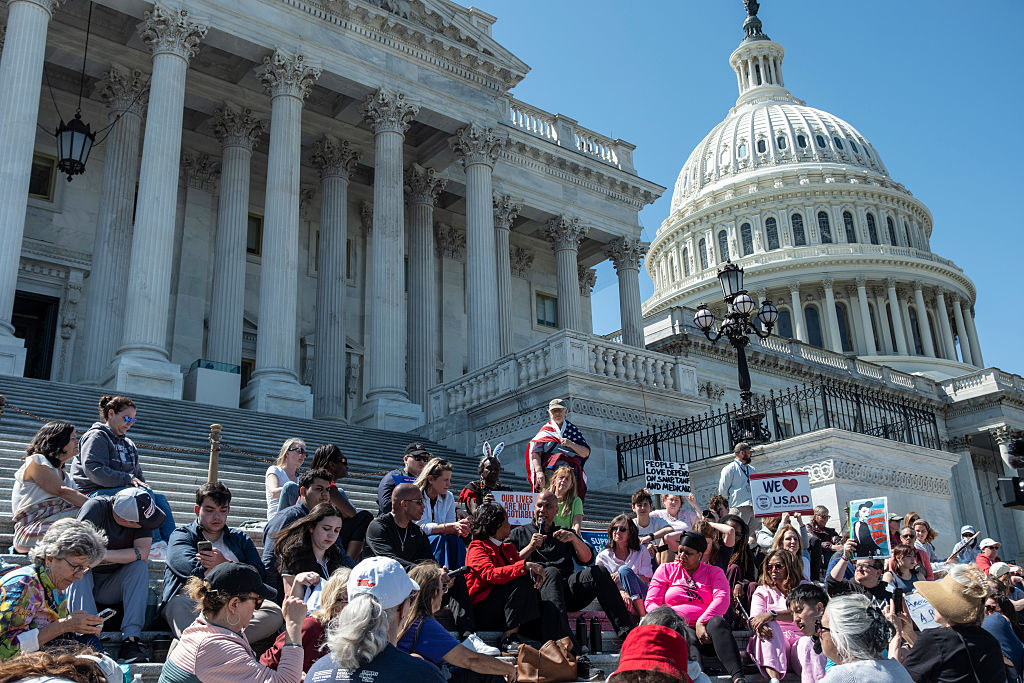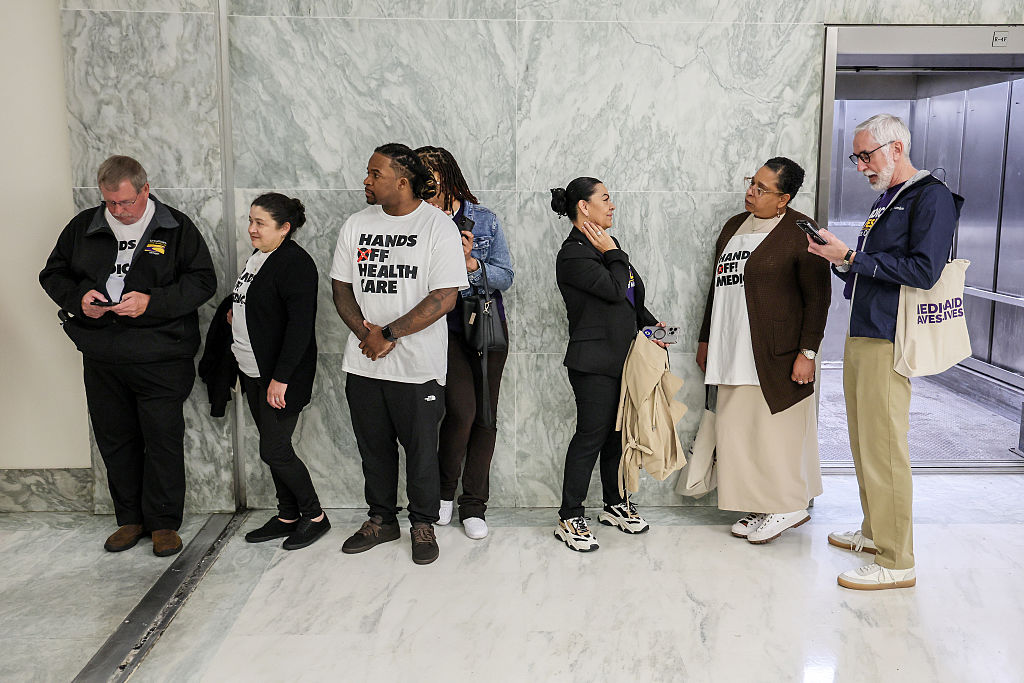Op-Ed: It’s Time to Cut the Greed, Not the People

One woman shared her challenges in affording a home. Another shared their difficulties in accessing health care after incarceration. Color Of Change recently hit the Hill with dozens of our members who shared their stories about the impact of Medicaid and Supplemental Nutrition Assistance Program (SNAP) on their lives and what a lack of investment in our country means for Black people.
Their stories are not unique. They’re painfully common. And yet, Congress is advancing a budget that offers the biggest benefits to those who need them least: billionaires and wealthy corporations. While many Black families are doing everything right and still falling behind, lawmakers are prioritizing tax breaks for the richest 1%. Meanwhile, the same lawmakers proposing these tax cuts are calling for $1.1 trillion in cuts to SNAP and Medicaid—programs that many Black communities depend on every day.
This is not an accident. It’s the continuation of a long, deeply racialized history of who our economy chooses to support and where our government chooses to invest. Republicans think it’s a beautiful idea to invest in the wealthy and cut $880 billion from Medicaid and $330 billion from SNAP. It’s a reverse Robin Hood: Stealing from the poor to give to the rich. They are choosing to build the wealth of billionaires on the backs of the entire working class.
Congress can choose to stop serving its donors and focus on its constituents at any moment now. Instead of making cuts, they should strengthen Medicaid and SNAP, provide more aid to the countless Americans who have taken on student debt, and provide relief for renters and homeowners who need to take care of themselves and their families.
It’s time for Congress to consider policies that put the people first. Congress should not cut Medicaid and hurt our communities’ access to health care. Instead, it should:
● Fully fund Medicaid so states are not left vulnerable;
● Expand eligibility so Medicaid remains stable for communities; and
● Support and expand access to health-related social needs, such as housing and employment support.

Congress should work towards improving SNAP, including:
● Improve SNAP benefit levels so people can afford adequate diets because current benefit levels are not enough to provide families with consistent access to healthy food, particularly in high-cost areas;
● Support SNAP use at farmers’ markets and other alternative spaces to expand access to healthier food; and
● Invest in supermarket availability so our communities can afford better diets.
If we want our communities to have financial stable homes, then Congress should consider things like:
● Rent Relief including via refundable tax credits for households earning under $100,000 and spending more than 30% of income on rent;
● A First-Time Homebuyer Credit for those looking to purchase their first home;
● A restructured Mortgage Interest Credit that helps middle- and low-income homeowners;
● A Multigenerational Caregiver Credit for families housing both elders and children;
● A Grandparent Caregiver Credit to help the many grandparents raising grandchildren;
● A Utility Bill Credit to ease the energy burden for many families; and
● A Single Adult Homeowner Credit for homeowners who seek stability but do not have dual incomes.
Let’s help the many people who invested in their education but are struggling to pay off their student loan debt by:
● Increasing the student loan interest deduction to $10,000 which would provide a big impact to a person’s bottom line and gross salary;
● Increasing the income threshold to $160,000 for single filers and $300,000 for joint filers so the deduction can be functional for current income and debt levels. This expansion can especially benefit Black women who pursue higher education at higher rates than others, including graduate education, and have higher levels of student debt; and
● Making the deduction a refundable credit which would disproportionately benefit lower-income borrowers with higher student loan debt burdens.

These are the investments in resilience, health, and intergenerational opportunity that put people–not billionaires–first. If our communities can’t afford their basic needs like health care, education, and housing, then they will make choices that put their lives and their families’ lives at risk.
The House passed their version of the reconciliation bill 215-214 and now everything sits with the Senate. I urge you to contact your Senators and oppose this bill. Tell them it’s time that we invest in communities rather than building the wealth of billionaires.
Budgets are not neutral documents. They reveal what we value, and who we’re willing to leave behind. This debate is about who gets to live and who gets to die. Call your Senators today, and let’s make sure our budgets cut the greed and put people first.
Michael Huggins is the Deputy Senior Director of Policy & Government Affairs at Color Of Change. He is also an Adjunct Professor in the Department of Political Science at Montgomery College.
SEE ALSO:
Op-Ed: Care For Constituents Or Chaos? Medicaid Cuts Will Devastate All Of Us




